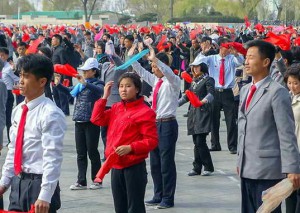 This thesis is a research on the diverse identities of North Korean migrants who became university students in South Korea and the significance of their life experiences as diasporas. With a rapid increase of North Korean migrants entering South Korea since mid-1990s, they were regarded to construct a new wave called the “the rush of North Korean Defector.” In the past, such ‘defectors’ were only recognized as political dissidents, and their identities confined to be interpreted in ideological terms.
This thesis is a research on the diverse identities of North Korean migrants who became university students in South Korea and the significance of their life experiences as diasporas. With a rapid increase of North Korean migrants entering South Korea since mid-1990s, they were regarded to construct a new wave called the “the rush of North Korean Defector.” In the past, such ‘defectors’ were only recognized as political dissidents, and their identities confined to be interpreted in ideological terms.
In post mid-1990s, the aggravated famine and economic crisis in North Korea has recast the light on the North Korean defectors, as “refugees.” However, there has been a recent surge of North Koreans leaving their home country driven by personal motivations. Attaining information on South Korea long before leaving the North, North Korean immigrants are fully aware and desirous of the resources and opportunities that await them once migrating to South Korea.
Accordingly, this thesis seeks to stipulate the term ‘North Korean migrants’ under the concept of diasporas. They are also motivated relocate to a different society to change their life circumstances. To prove this, personal experiences of young North Korean migrants relocating and resettling in South Korea will be analyzed as well as their reshaped and varying identities. This research was conducted via in-depth interviews with young North Korean migrants preparing for or already enrolled in universities in Seoul, South Korea.
Consequently, this thesis offers a comprehensive overview on whether the social prejudices have been instituted into public policy associated with North Korean migrants. In the young North Korean migrants’ strive for educational and social change and their struggles in dating and marriage, there is also an inevitable sharing of common problems that overarching generations. Hard as the North Korean migrants might apply themselves personally, however, there appears to be a limit for them.
Therefore, an analysis of the identities and lives of these North Korean college students should go beyond their mere “incorporation” into the South Korean society. Rather this thesis is a critical ‘cultural commentary’ on the South Korean society. Furthermore, it is also an attempt to rid of the simplistic perspective toward North Korean migrants as well as an attempt to build a more holistic public policy on the issue.
Created by KWON Nahye
